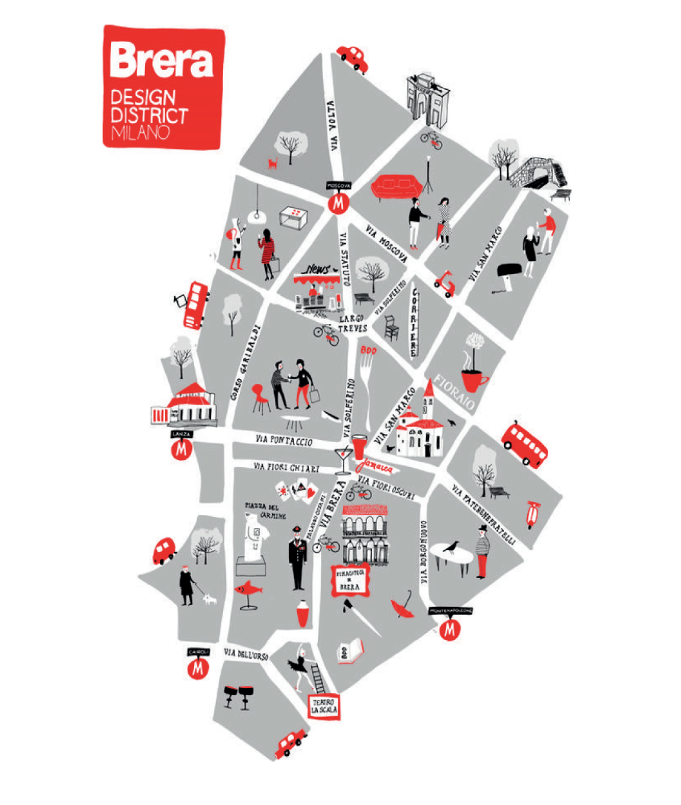Attractions

Brera District
The Brera district is located in the beating heart of Milan, about a ten-minute walk from the Duomo. Picturesque and charming, the neighbourhood is the jewel in the crown of the city. A destination for artistsfor centuries, today it fascinates its visitors with the presence of important cultural places, its fashionable shops and its unmistakable romantic and bohemian nature.
You can also find several bars and restaurants where you can enjoy the beautiful old-style setting offered by this small but very nice and suggestive area.
We are happy to offer discounted prices if you book from our website directly
Pinacoteca di Brera: a museum full of masterpieces
The Pinacoteca di Brera is the first museum in Milan and one of the most important art galleries in the world. It was built in 1776 by the great architect Giuseppe Piermarini: he wanted to create a collection with educational purposes for young students of the Academy. When Milan became the capital of the Kingdom of Italy, thanks to the will of Napoleon, the Pinacoteca di Brera was transformed into a museum in which were exhibited all the most important works from conquered territories.
Today, the Pinacoteca houses some of the most prestigious works, both ancient and modern paintings and sculptures. Among the various authors that you can appreciate inside the gallery there are Mantegna, Raffaello, Caravaggio, Tintoretto, Piero della Francesca, Francesco Hayez and several other artists of great calibre.
The building in which it is located also houses other institutions, including the Braidense National Library and the prestigious Academy of Fine Art, founded by Maria Teresa of Austria.
You can find all the information on https://pinacotecabrera.org/en/.



Milan’s Duomo: The City Landmark
On the main spire, the golden statue of the Madonnina stands out: it is also one of the main symbols of Milan.
Galleria Vittorio Emanuele Ii: History and Mundanity
On the main spire, the golden statue of the Madonnina stands out: it is also one of the main symbols of Milan.
Museum of the XX Century: an exporation of Modern Art
Sforza Castle: from a defensive fort to a museum complex
The Sforza Castle is a large fortified complex located in the historic centre of the city. Built around the second half of the XIV century by the Visconti family, the castle was destroyed and then rebuilt in 1450 by Francesco Sforza I and was used as a summer residence by the Dukes of Milan. Today the building also hosts the Castle Pinacoteca and the Museum of Musical Instruments.
Sempione park: Milan’s green lung
Behind the Sforza Castle, there is Parco Sempione, a large English garden, with majestic trees, paths, bridges, a pond … Built at the end of the nineteenth century, it hosted the first Universal Exhibition in Milan in 1906. Inside the park there are also the Civic Aquarium and Milan’s Civic Arena. Climbing the Branca Tower to admire it from above is an unforgettable experience!
Triennale Milano: the design temple
Inside Parco Sempione you can find the Art Palace, home of Triennale Milano, one of the most important cultural institutions at international level. High-level productions, with major exhibitions, educational activities, conferences, seminars, workshops, events and special initiatives have marked its history, made not only of design, but also of art, architecture, fashion, cinema, communication and society.



